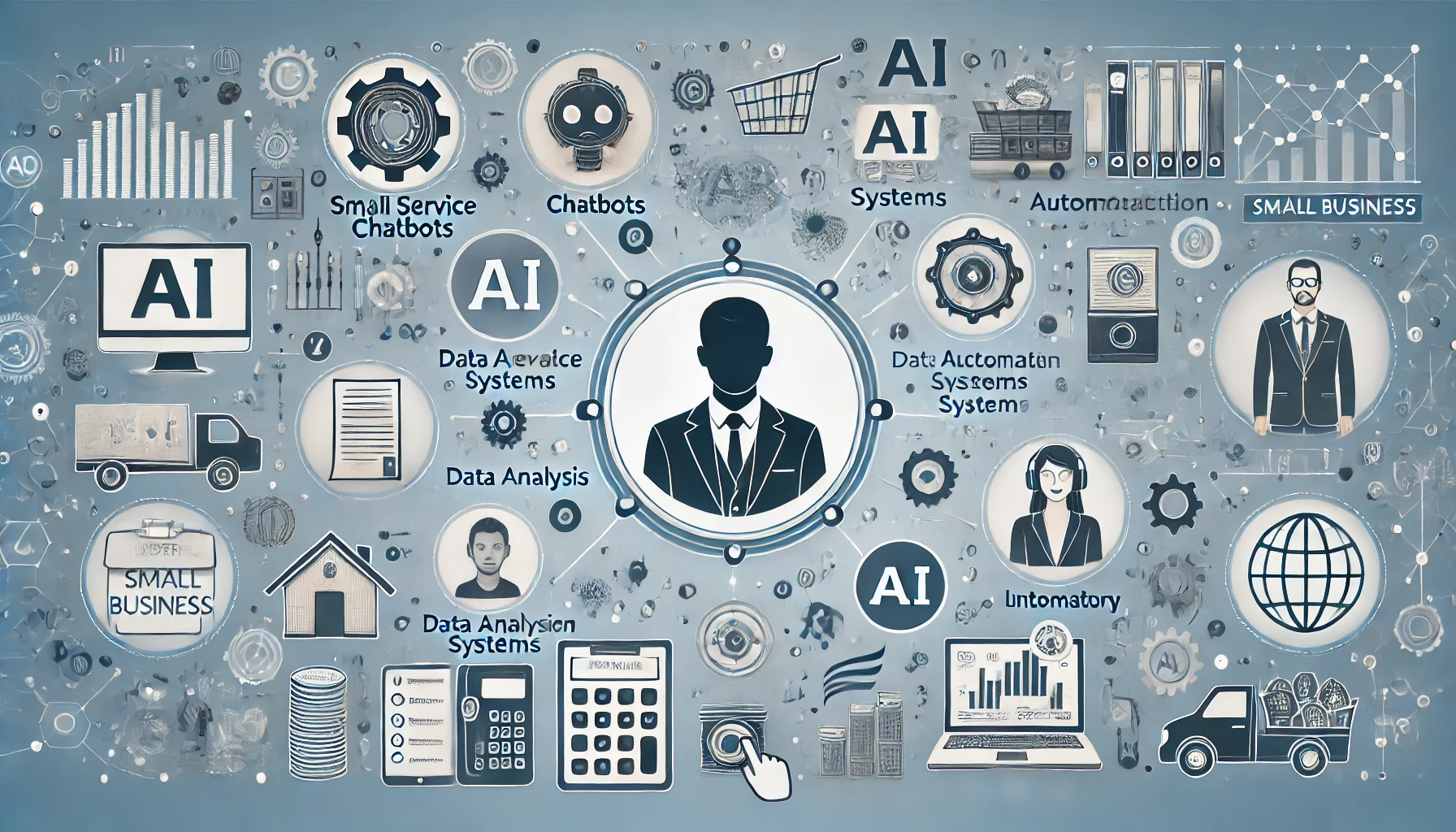AI Use Cases for Small Businesses
Introduction
Artificial Intelligence (AI) is no longer limited to large corporations. Small businesses can now leverage AI to improve productivity, customer experience, and overall growth. From automating tasks to gaining insights from data, AI use cases for small businesses are becoming increasingly accessible and affordable.
AI Use Cases for Small Businesses
- Customer Service with AI Chatbots
Small businesses can implement AI chatbots to handle common customer inquiries, offering instant support 24/7. Chatbots, powered by services like Google Dialogflow and Zendesk AI, can answer questions, book appointments, or manage orders without human intervention. This not only improves customer experience but also reduces operational costs. - Personalized Marketing Campaigns
AI tools like HubSpot AI help small businesses deliver personalized content to customers based on their preferences, browsing habits, and purchase history. This data-driven approach ensures that marketing campaigns are targeted and relevant, increasing conversion rates and customer loyalty. - Inventory and Supply Chain Optimization
AI can analyze historical sales data to predict future demand, allowing small businesses to optimize inventory management. Tools like TradeGecko and Brightpearl provide AI-powered insights that help business owners reduce overstocking or understocking, streamlining their supply chains and reducing costs. - Automated Accounting and Bookkeeping
AI-powered tools like QuickBooks AI and Xero AI automate tasks such as categorizing expenses, generating financial reports, and reconciling accounts. Small businesses can save time on mundane financial tasks and focus more on strategic growth. - AI for Recruiting and HR
Small businesses can enhance their hiring process by using AI tools like Breezy HR to screen resumes, schedule interviews, and even assess candidates. AI ensures a faster and more efficient recruitment process, helping businesses attract the right talent.
Challenges and Considerations
While AI offers numerous benefits, small businesses should be mindful of data privacy and compliance with regulations such as GDPR and CCPA when using AI for customer data. Additionally, AI implementation may require initial investments in software or training.
Conclusion
AI is becoming an essential tool for small businesses, driving growth through automation, personalized marketing, and enhanced customer service. With tools now accessible at affordable rates, small businesses can leverage AI to remain competitive and improve operational efficiency.
To learn how to implement AI in your business, explore LinneoTech’s AI courses and stay ahead in the digital transformation.


